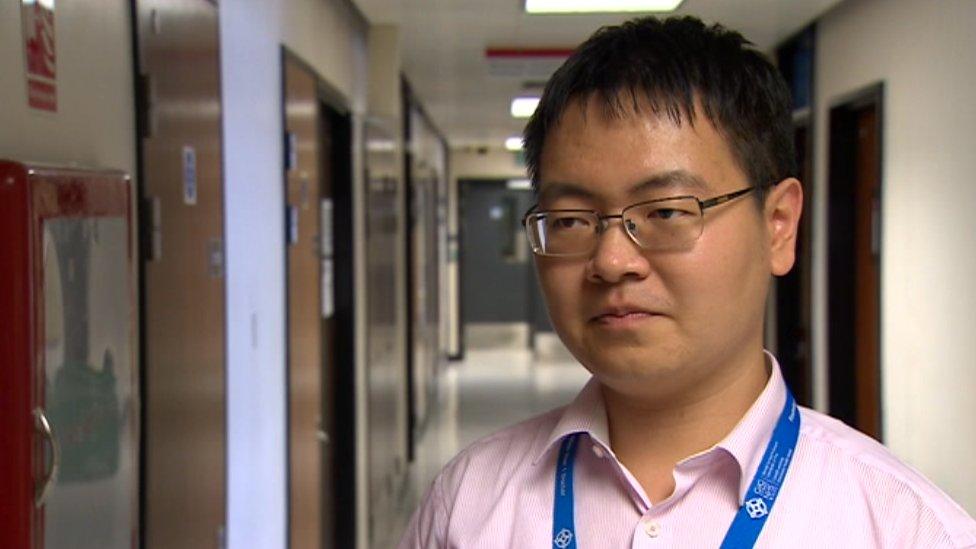£20,000 trainee GP offer to boost doctor recruitment
- Published
Dr Heidi Phillips said her profession faced "huge challenges" to hire and keep GPs
New cash incentives will be offered to doctors who train and work as GPs in Wales in a bid to tackle an issue with recruitment.
Junior doctors will get £20,000, providing they stay for at least one year after completing their training.
Those who train as GPs will also get a one-off payment of £2,000 to cover the cost of their final exams.
It is part of a Welsh Government campaign to get doctors to train and work here in a bid to combat shortages., external
Incentives will be in place in time for the August 2017 intake and BBC Wales understands this is the first scheme of its kind in the UK.
In another UK first, a new contract will be offered to all trainee doctors in Wales regardless of their specialism - which will guarantee protected time for learning.
Some trainees previously raised concerns their time to study was limited because they had to spend longer looking after patients due to increasing pressures on frontline services.
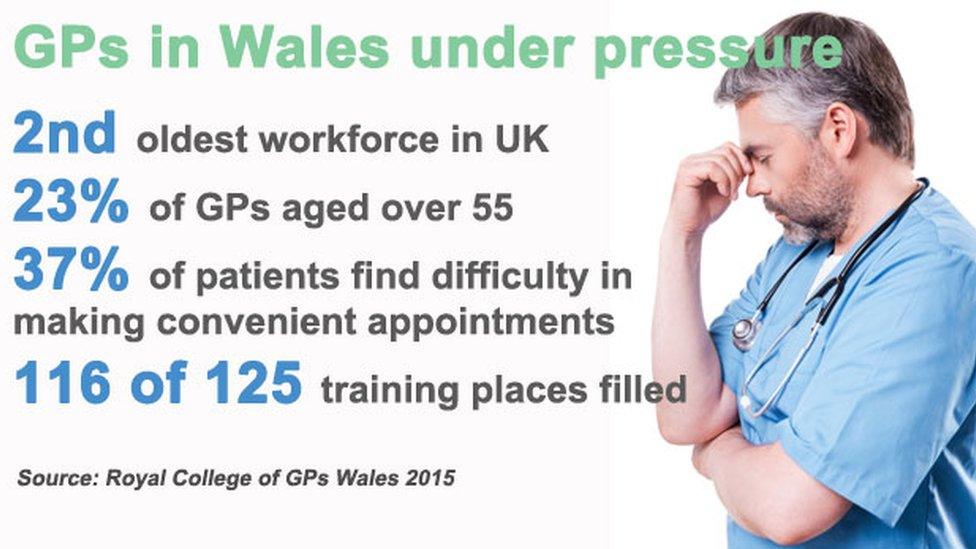
More than a quarter of GPs in Wales surveyed by the British Medical Association said they were considering leaving the profession, with concerns over workload and understaffing.
A group of GPs in Rhondda - where up to half of family doctors are over 55 - created their own website , externalaimed at tackling recruitment issues.
It follows on from long-term concerns about doctors retiring and some practices being handed back to health boards.
The new contract, being introduced by the Welsh Government, health boards and the Wales Deanery - the body responsible for training junior doctors - includes study time written into the working week.
Specialist training in general practice, external takes three years to complete.
Health Secretary Vaughan Gething said: "Financial incentives are only part of the picture. So part of the offer will be about saying in these different parts of Wales, these are all the things you can do with your whole family if you buy into being part of the life and fabric of Wales.
"It's an uniquely Welsh offer."
This week, the Royal College of General Practitioners in Wales warned chronic under-investment meant GPs were facing a "perfect storm" of increased demand, heavier workloads and a shrinking workforce.
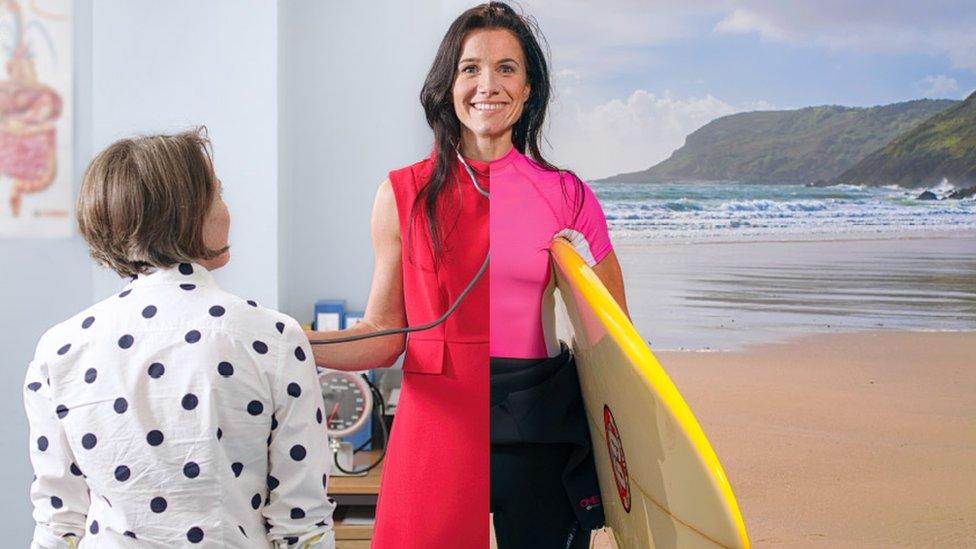
The Welsh Government is running a series of adverts to attract doctors
Under the new campaign, being run in the UK and abroad, there will also be telephone and online support for doctors interested in returning to Wales.
"I won't pretend to you or any GP that this is a magic wand that will suddenly take away all of that pressure and difficulty," said Mr Gething.
"We need to make sure people still love their job and that we do something about how busy they are and how effective they get to use their time.
"That's why other healthcare professionals are absolutely part of the solution."
Dr Gwyndaf Williams said he was concerned about the future of general practice
Gwyndaf Williams, from north Wales, has been a doctor in Tonypandy, Rhondda Cynon Taff, for four years and trained in the valleys.
Unusually, he is working with four other people in the practice aged under 40.
"Being a GP can be a very isolating job, it's important you work in an understanding team and help each other out for longevity," he said.
"It can get very intense. We're now entering the winter months and we're seeing respiratory tract illnesses, coughs and colds and we do find the access to appointments getting harder and we're seeing more patients.
"Personally, I think it's about improving the day-to-day life of general practice, just making the days easier, making the workload less, that in itself will attract people to take permanent positions."
- Published12 October 2016
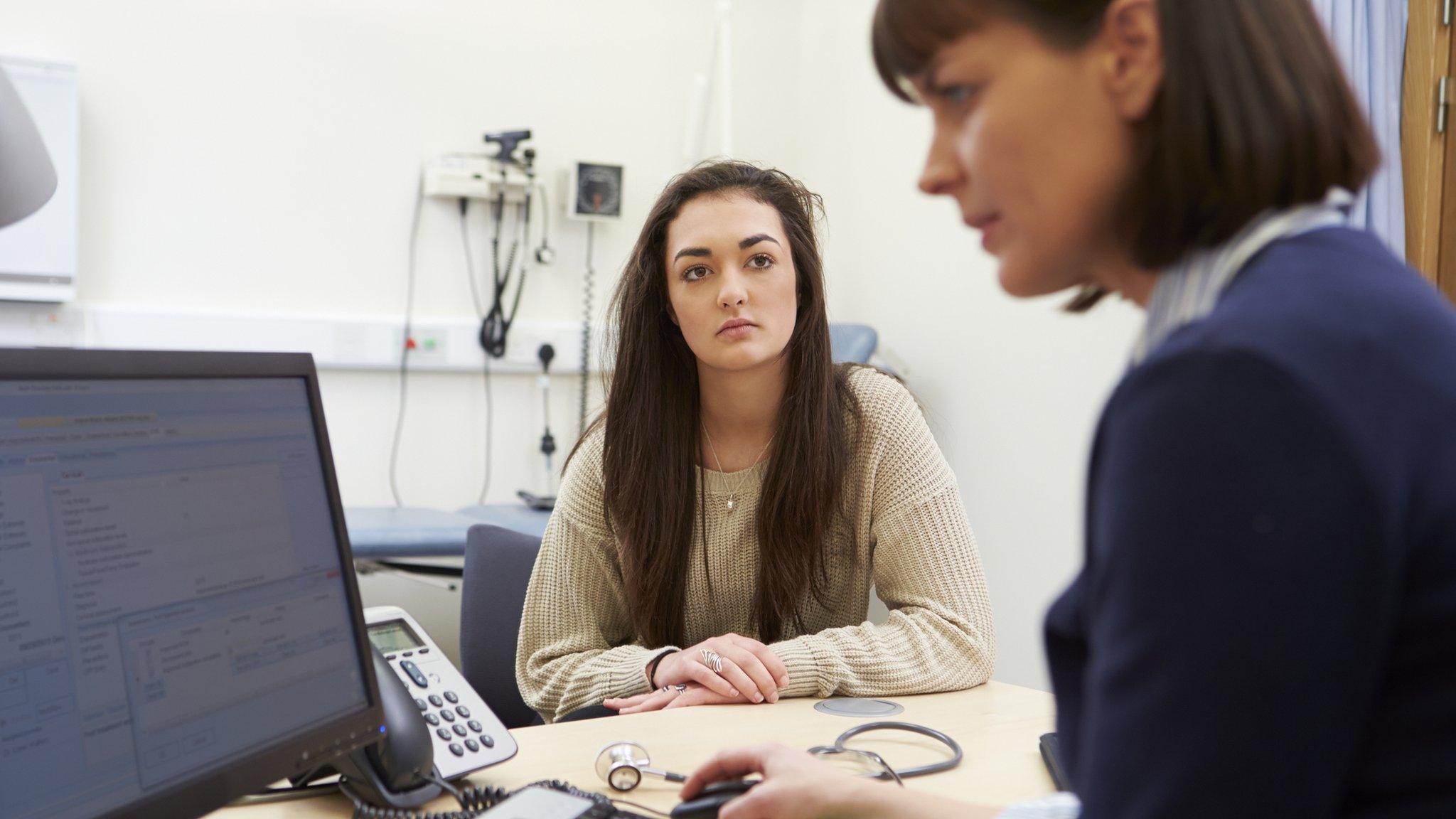
- Published8 September 2016
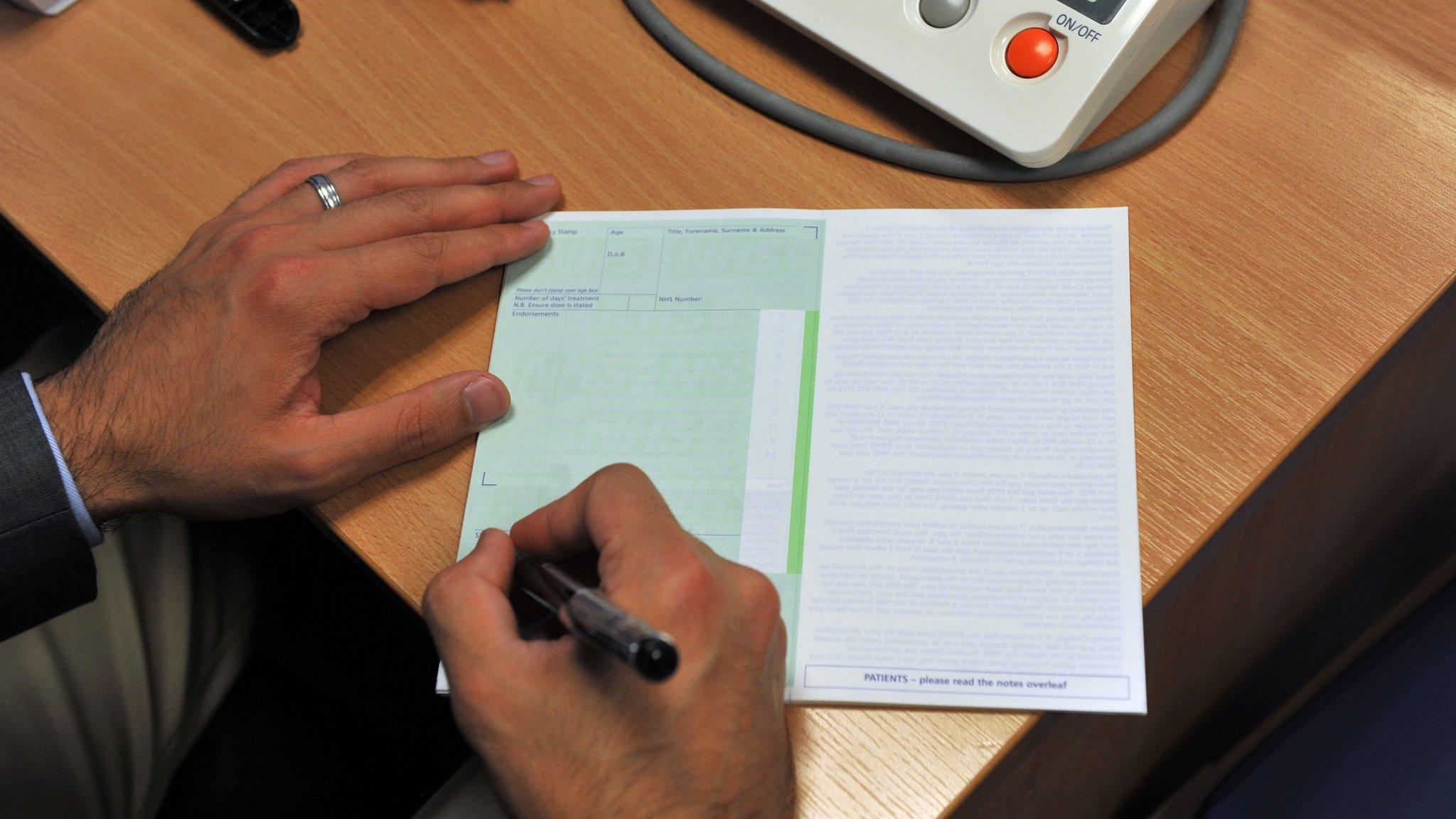
- Published3 August 2016
